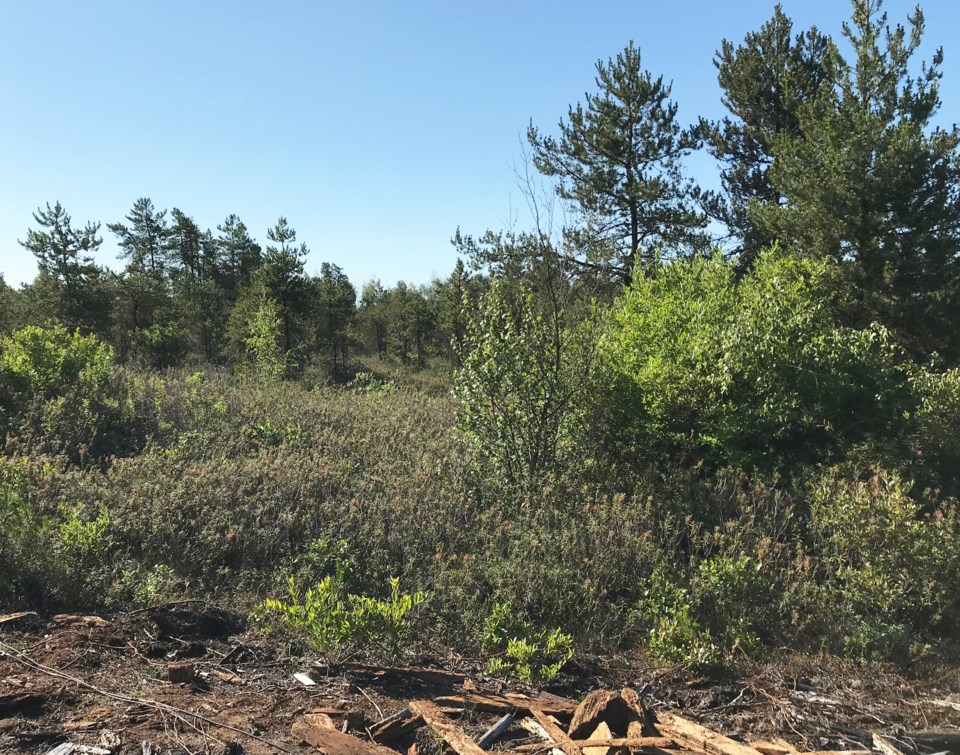The cost of reducing the risk of wildfire in Burns Bog turned out to be more than the City of Delta expected.
Staff recently gave council a report on the city’s extreme weather response in Delta, providing updates on various initiatives including a plan approved last summer to undertake measures to reduce the risk of wildfires in the bog. The plan involves the thinning out of trees.
It was part of Delta’s Community Wildfire Protection Plan aimed at addressing risks associated with wildland-urban interface areas across the municipality.
That plan contains elements of community wildfire protection including communication and education, structure protection, training, emergency response and vegetation management.
One of the priorities was to develop a fuel management plan to help prevent wildfires and, with grant funding received from the Union of British Columbia Municipalities (UBCM), a plan to reduce vegetation fuel that could feed fires was completed.
It identified eight “priority parcels” in Burns Bog and North Delta’s Watershed Park.
The recent report notes, “The management of fuel (vegetation) is a key element to reducing the risks of wildfires; however, there is no 'one size fits all' approach and each site must be assessed and treated differently. For example, fuel management in Watershed Park is done strategically to minimize disruption to the natural ecosystem and retain the beauty of the forest, while at the same time, creating an environment in which wildfires would be more manageable and easier to put out.”
The first works that were carried out at the bog last fall included fuel management at the city’s radio communications tower around 72 Street.
However, the estimate received to complete the work is over $280,000, greatly exceeding UBCM grant funding of $50,000.
The higher than expected costs are due to extremely challenging conditions at the site, the report notes, adding staff are working to reduce the scope of work and seeking assistance from BC Wildfire Service staff.
Meanwhile, Delta earlier this year received a grant of $50,000 from the UBCM FireSmart Community Fund to undertake fuel management work in Watershed Park. A request for proposals will be issued soon and that work is expected to commence later this year.
At the Huff Greenway, selective pruning of spruce trees, which are closest to the walking trails where the risk of ignition is highest, will be undertaken in the next couple of months.
As far as private properties, the city will send letters to residents living in close proximity to vegetated areas to inform them of steps they can take to reduce fire hazards around their homes and properties, including grant information to encourage private landowners to potentially take advantage of provincial funding.



